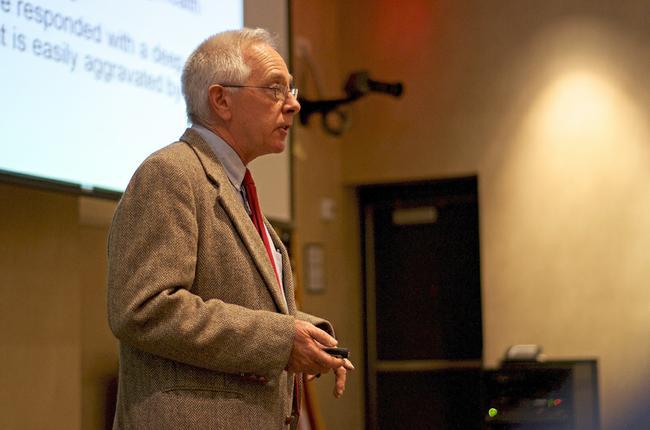A report on traffic stops shows racial biases in policing, according to the Columbia Profiling Group.
The group met Tuesday night at City Hall to present Columbia Police Department vehicle stop reports, looking at biased-based policing.
“Race is not a good predictor of violators,” said Don Love, chairman of Missouri Association for Social Welfare of the Human Rights Task Force. “Officers need to learn to observe behavior.”
He discussed the Missouri Racial Profiling Law, which prohibits the practice of routinely stopping members of minority groups for violations of vehicle laws as a pretext for investigating other violations.
The law discusses “racial profiling,” but a statewide group, convened by Karen Aroesty of the Anti-Defamation League, said it prefers the term “bias-based policing.” The group said it believes the bias is directed toward people who are different from them.
“We are trying to be proactive about how we police if we may have a bias,” CPD Police Chief Ken Burton said.
When racially profiling, officers treat every minority as a suspect, Love said. The overall goal of this coalition is to work with the community to reduce racial-bias in policing.
“Officers, as well-disciplined professionals with a special commitment to justice, can set a standard for everyone else,” Love said. “We have the tools to help officers overcome bias.”
In attendance was Columbia citizens, police officers, members of the NAACP and a member of the Missouri Civil Rights Association, among others.
“The whole reason we’re here is that we want to make changes,” Burton said.
Others in attendance said they wanted to make changes, particularly with vehicle stops among minority drivers.
“I have never experienced racial bias involving law authorities, but this is a real concern for us,” said Linda Dodd, an active member of the NAACP.
Love said he agreed that biases are universal, but still wants change.
“We can’t eliminate biases, but we can learn to recognize them and control them,” he said. “Officers have no more bias than the rest of us, but it’s exceptionally important that they learn to control them, because we count on officers to enforce laws equally.”
Police are trained to stress “understanding and respect for racial and cultural differences” and “development of effective, non-combative methods of carrying out law enforcement duties in a racially and culturally diverse environment,” Love said.
The profiling law requires all officers to record information on all vehicle stops, including minority group of the driver, reason for stop, whether a search was conducted, contraband discovered and location.
The police department requires its officers to go through annual cultural diversity training.
“But in my opinion, that is not enough,” Burton wrote in an email.
Additionally, each law enforcement agency is to report a summary of this information to the attorney general, who requires reviews to see if officers have a pattern of biased stops.
“If we respond the right way, we can have the equality we dream of,” Love said.
The group said it plans to meet again at 5 p.m. Oct. 5 at 17 N. Seventh St.








